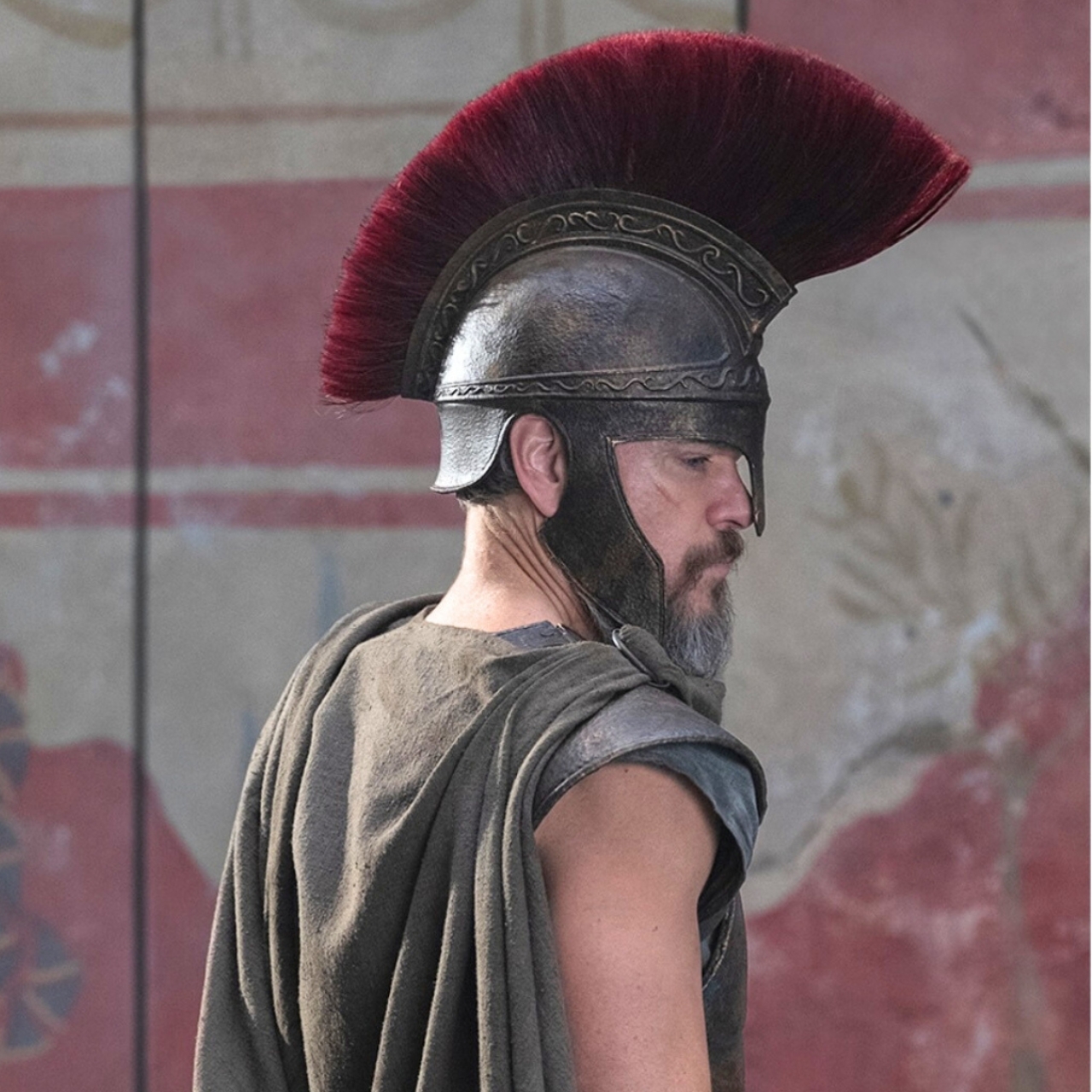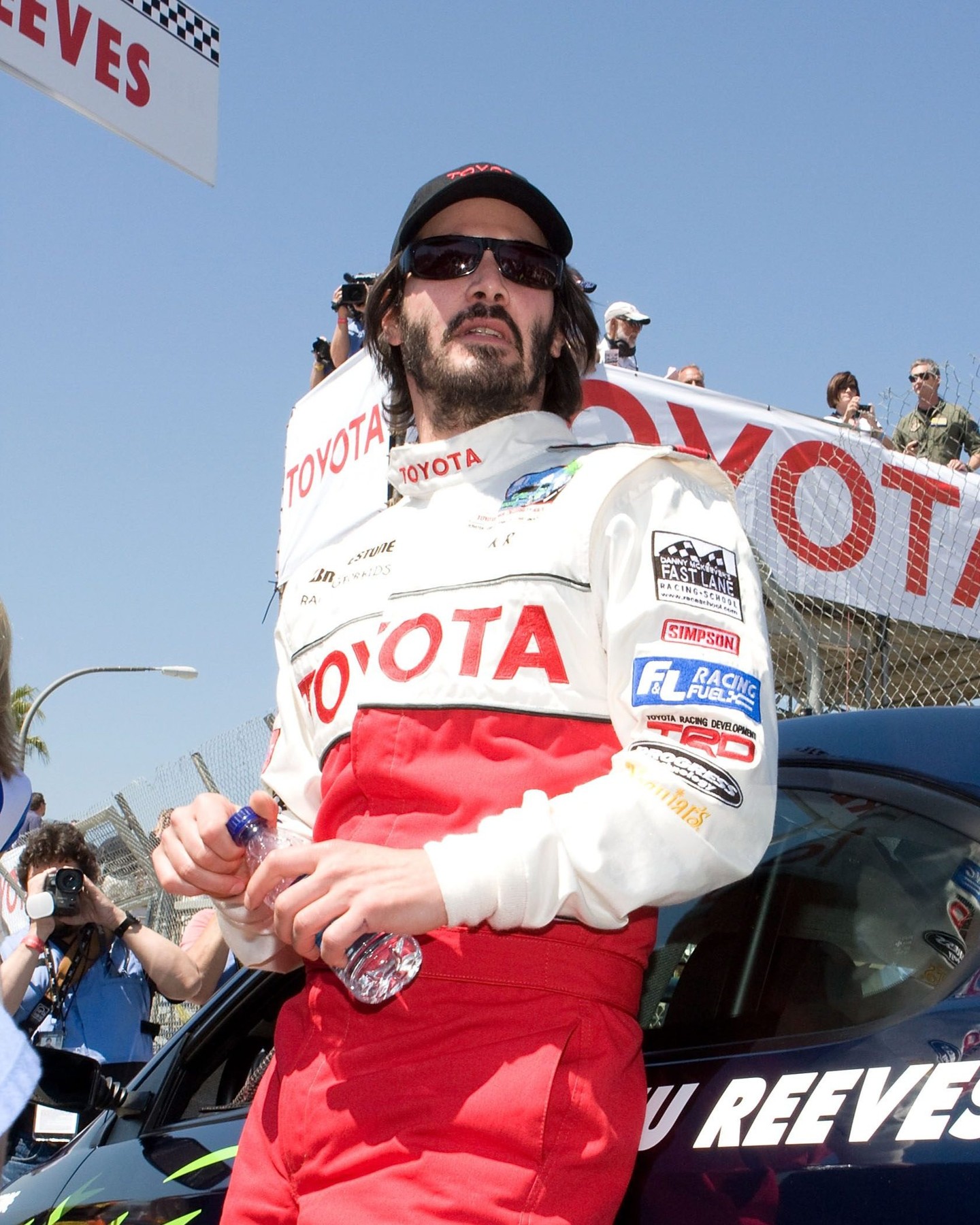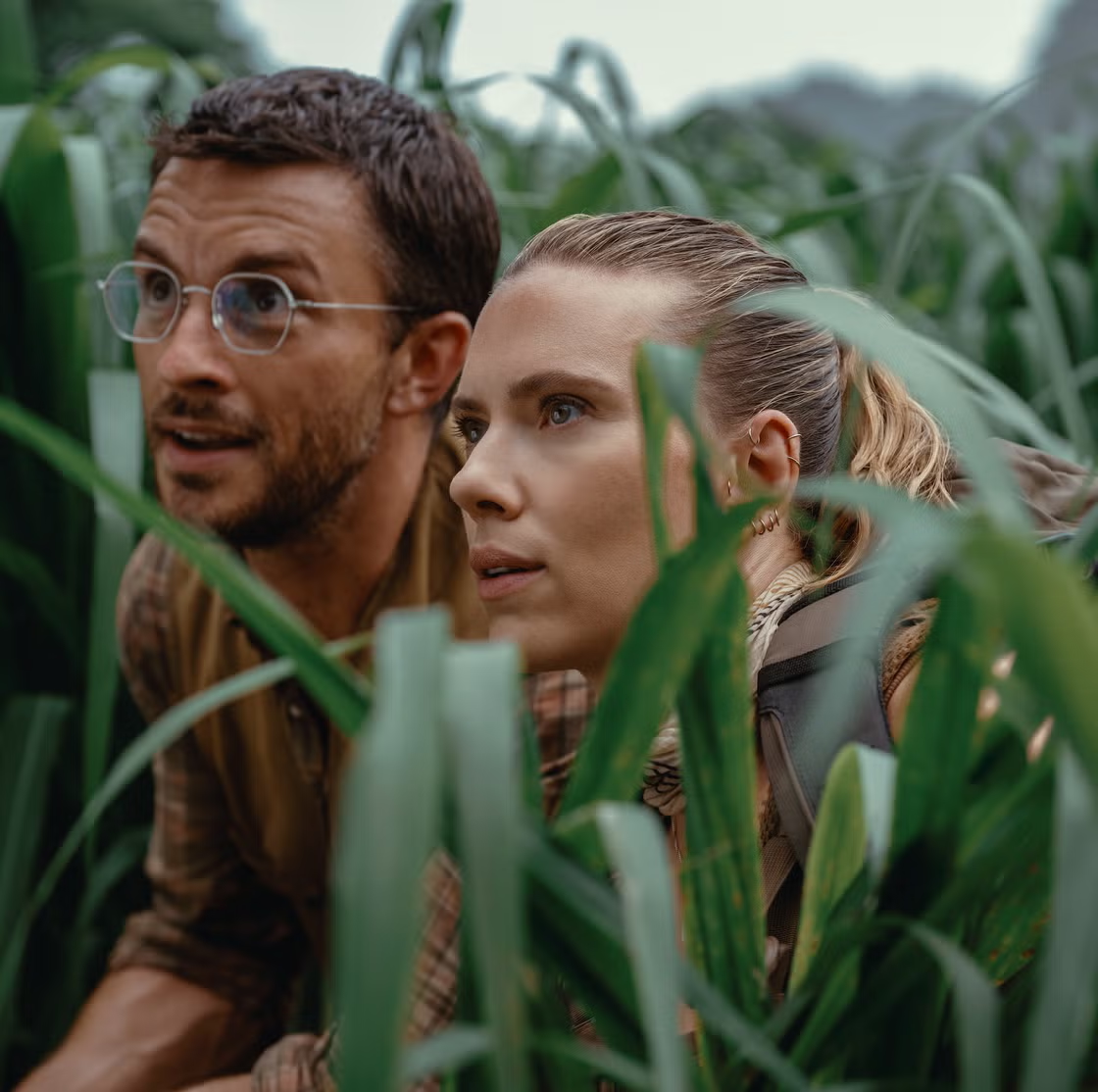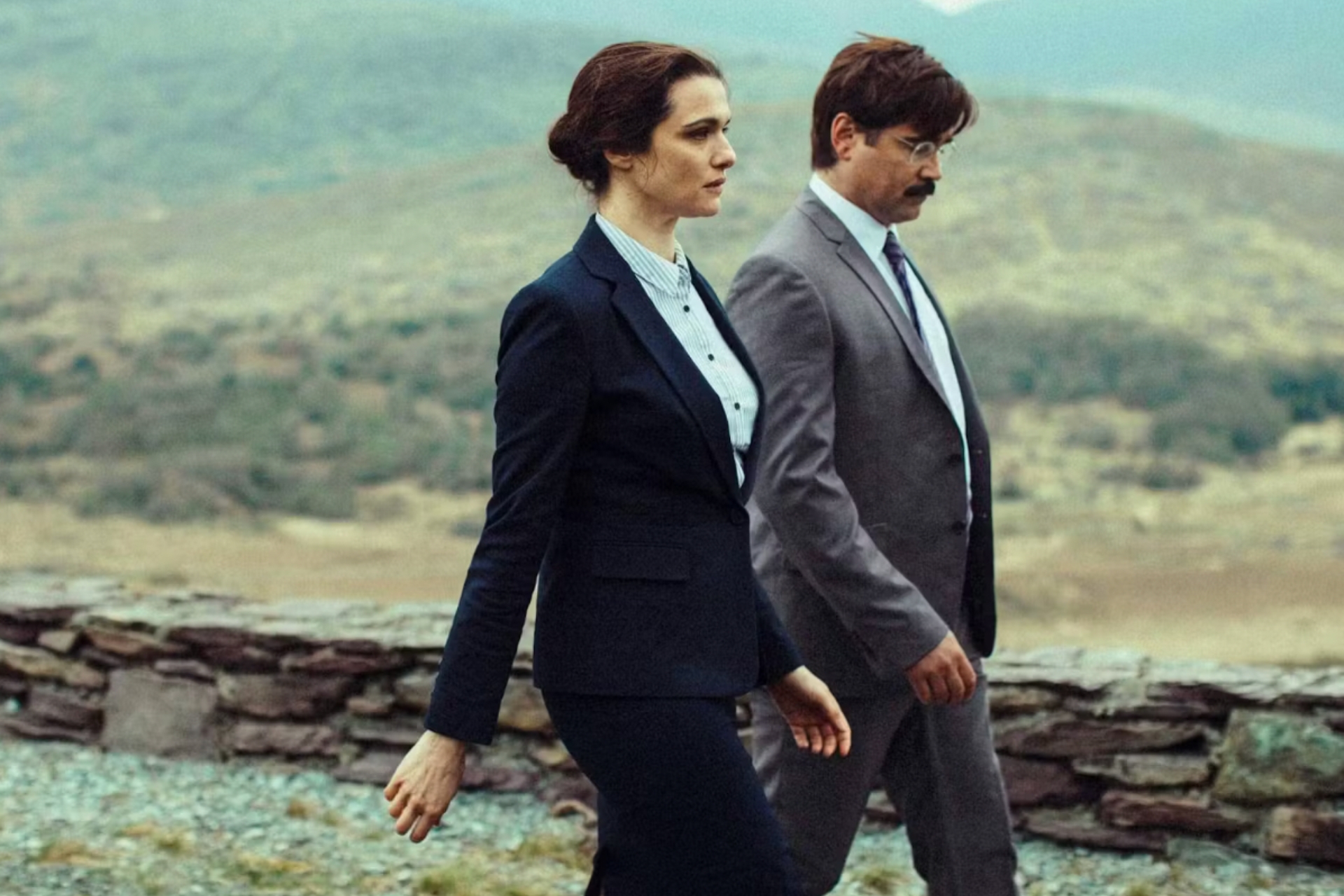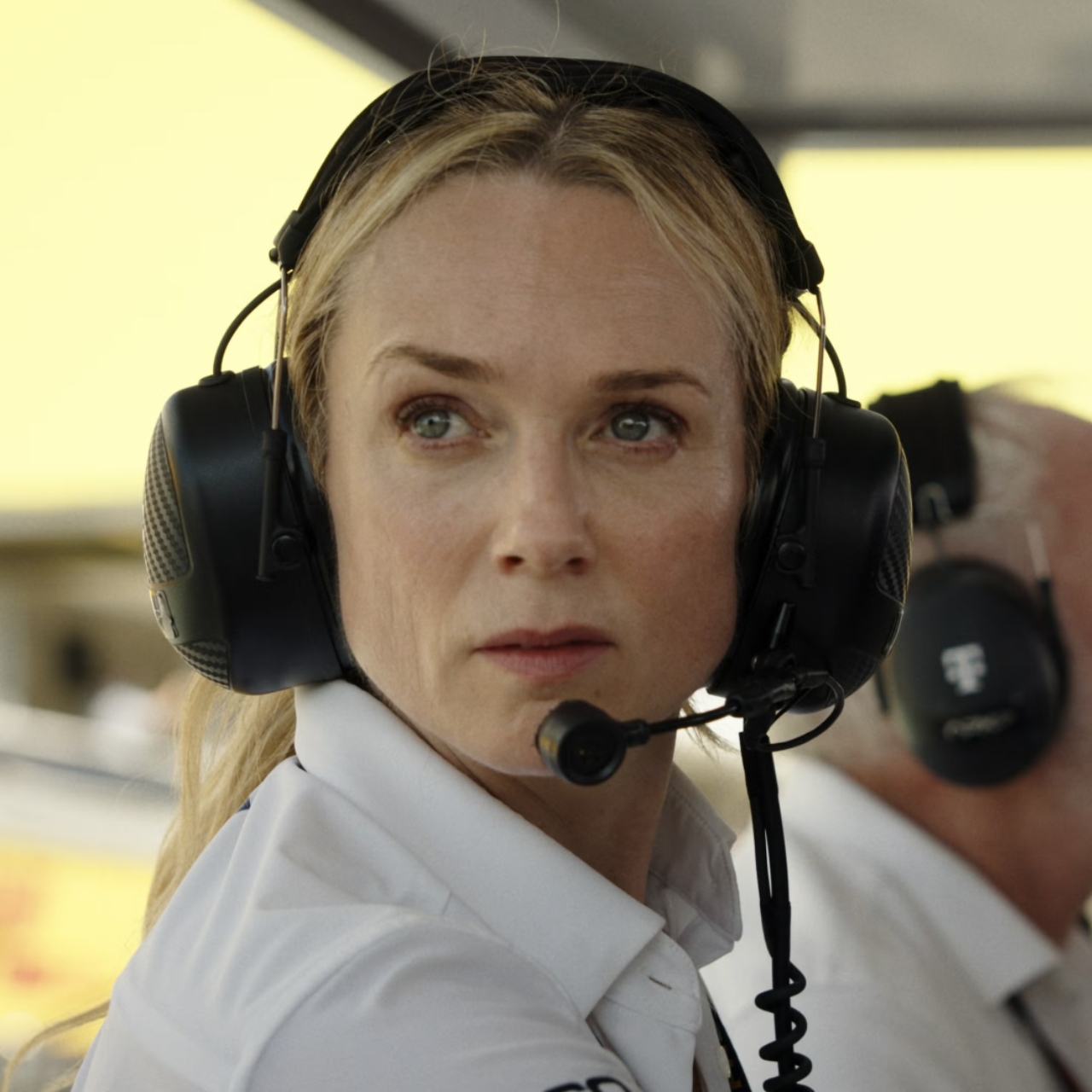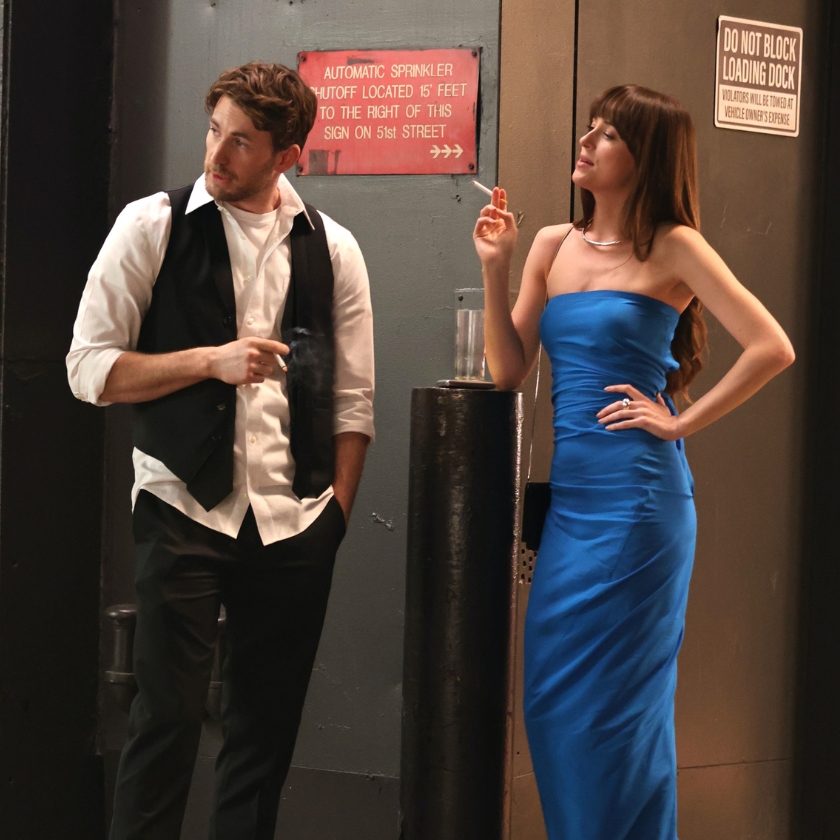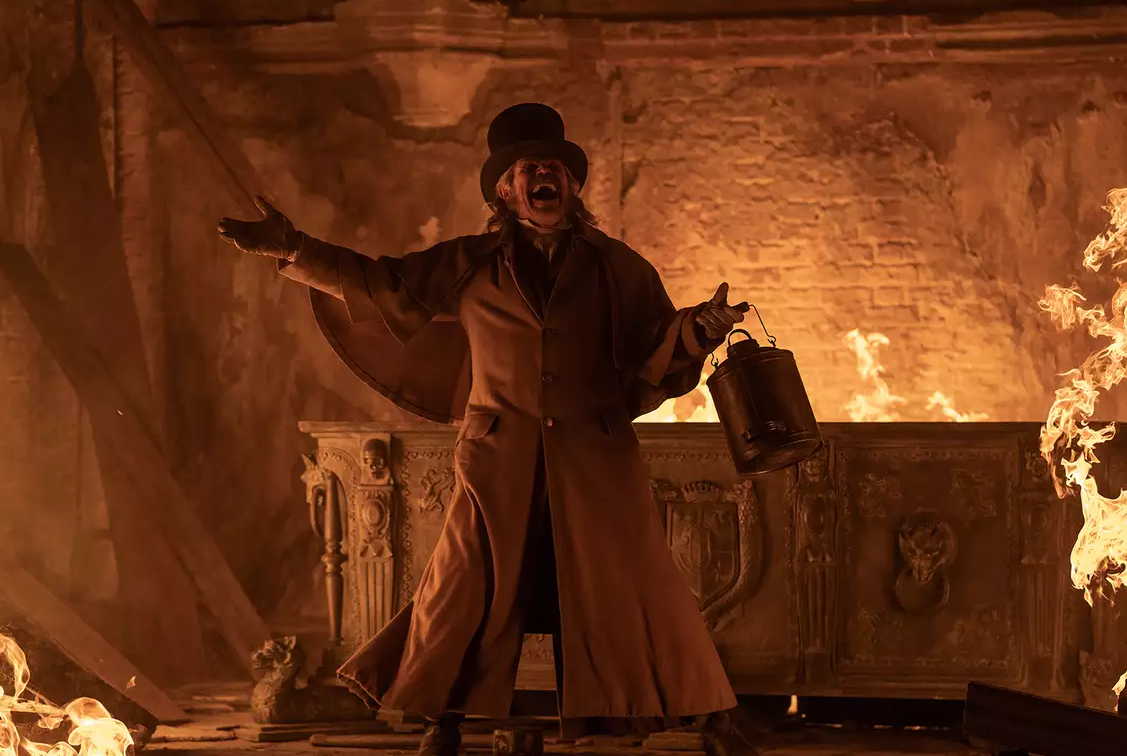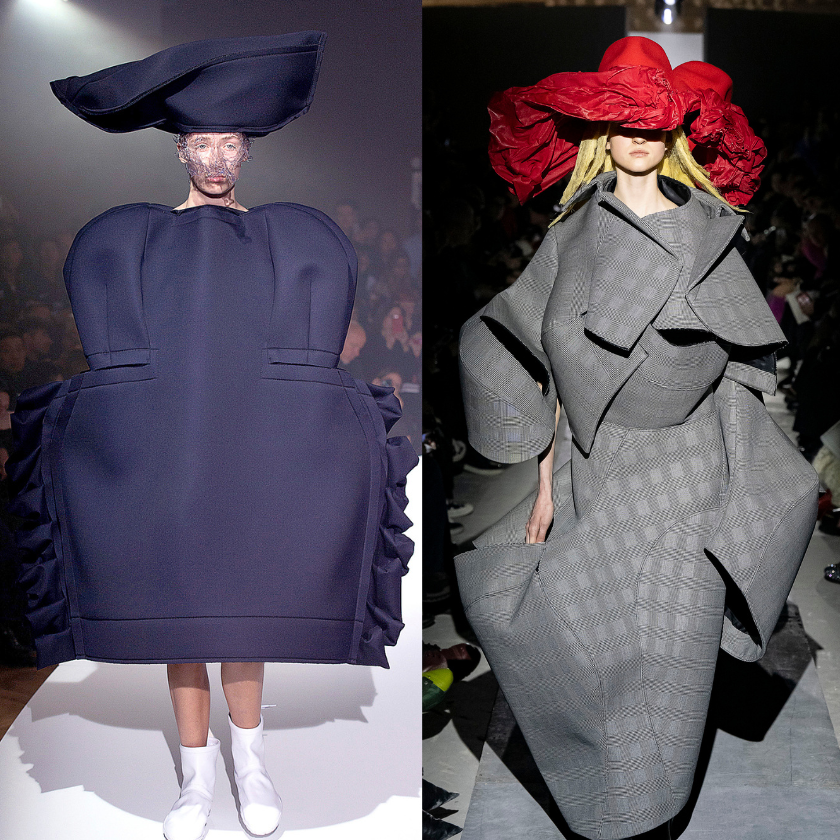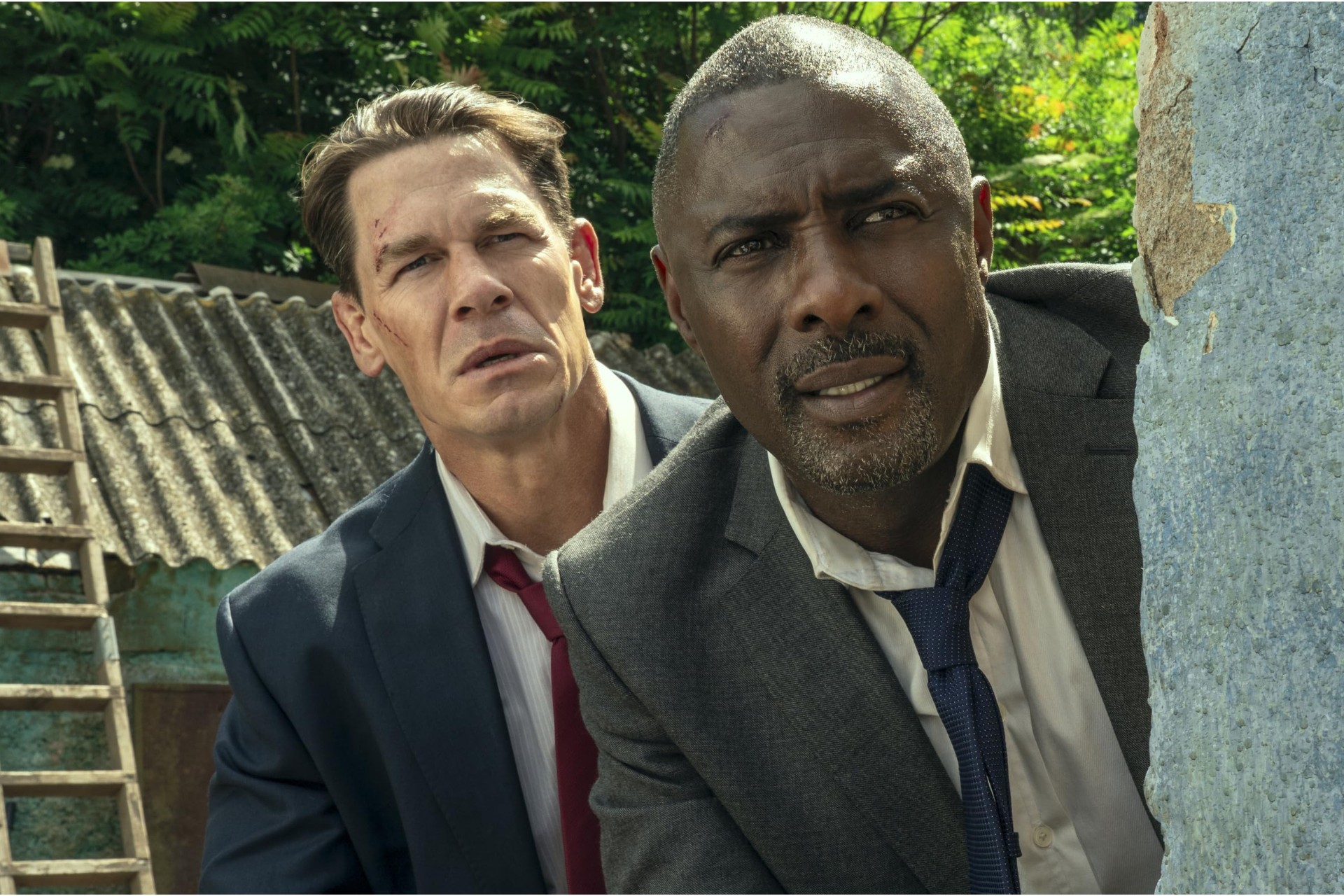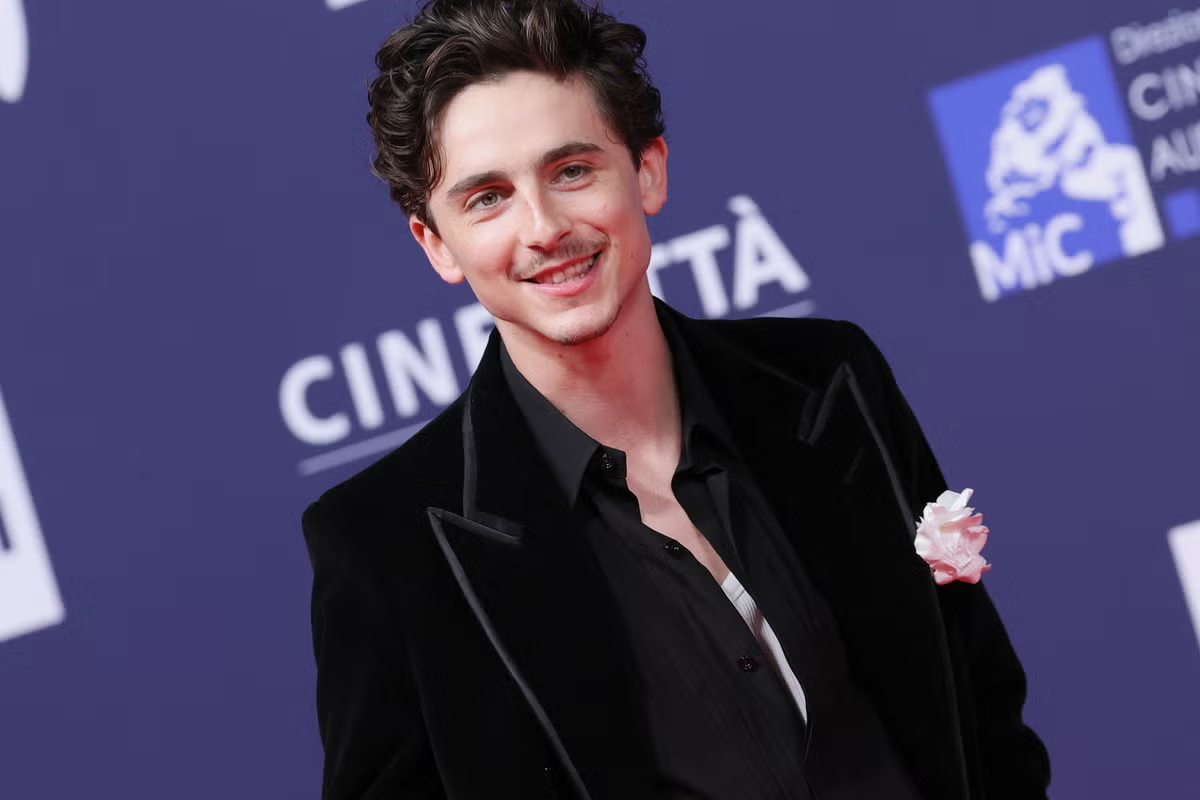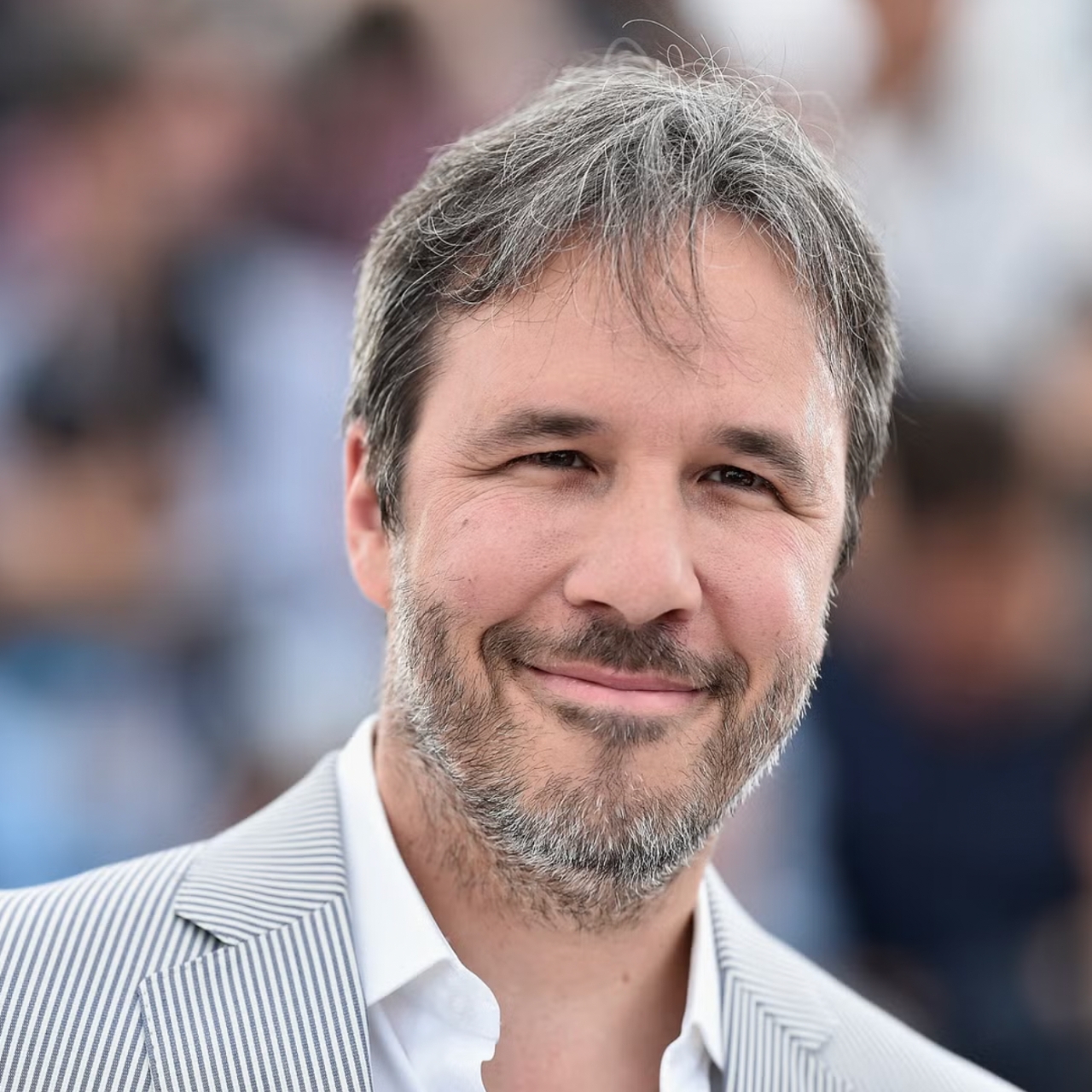Director Charles Williams on subverting the prison genre with ‘Inside’
Charles Williams tapped a star-studded cast for his first feature-length film, 'Inside'. Recently, the director sat down with Esquire to discuss why the film makes a point of differentiating itself from its genre
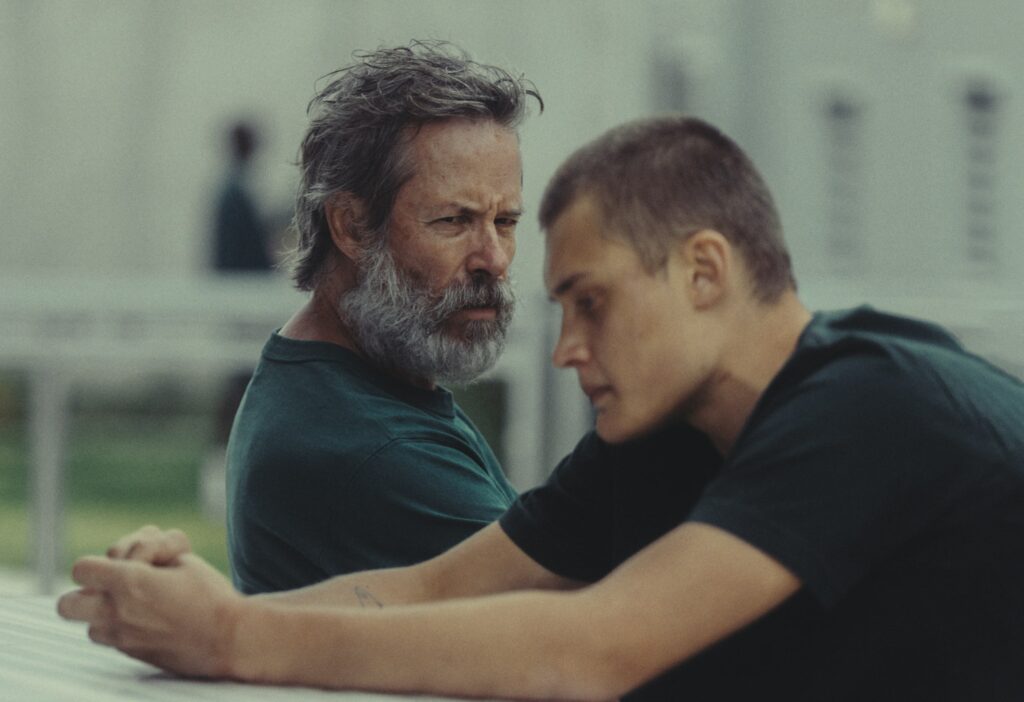
WHEN CHARLES WILLIAMS won the Palme D’Or for best short film at the 2018 Cannes Film Festival, it wasn’t jubilation he felt, but relief. “It came after many years of pushing so hard and trying to get somewhere, not just in terms of recognition, but in terms of making a film that I could watch with a room full of people and feel good about,” he tells Esquire during a recent sit down, one week out from the premiere of his first feature-length film.
Before his breakthrough at Cannes, Williams was a relative unknown, but filmmaking was always his passion. He says he’s been “trying to make films” in some way or another since he was 13 years old, and at the age of 19, he won Best Director at Tropfest, but it was Cannes that served as the impetus for his emergence onto the international stage. Now, Williams’ first feature-length film, Inside, has premiered at the Melbourne International Film Festival (MIFF).
Inside follows Mel Blight – played by Vincent Miller in his debut role – a youth serving time in juvenile detention before being transferred to a maximum-security prison. There, he shares a cell with Mark Shepard – who is brought to life in an incredible turn by Shōgun’s Cosmo Jarvis – a notorious criminal convicted of murdering an adolescent girl. Shepard has a sizeable contract on his head, an opportunity that Guy Pearce’s Warren Murfett, a prison lifer heavily in debt but nearing parole and a reunion with his son – portrayed by Esquire digital cover star Toby Wallace – views as too good to pass up.
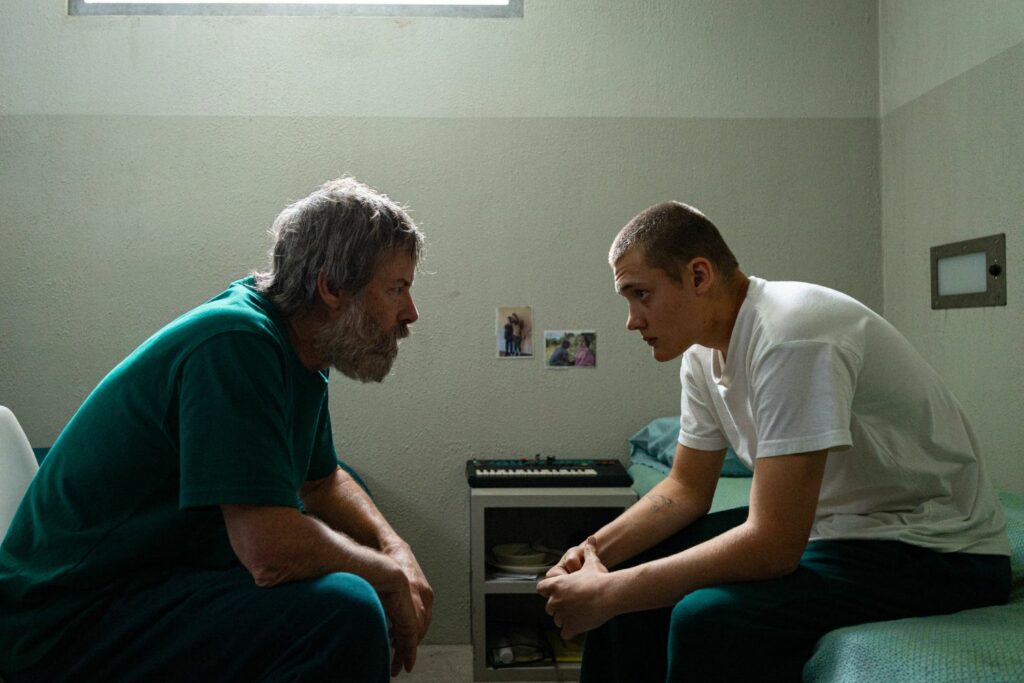
Murfett quickly takes Mel under his wing and recruits him to kill Shepard, who has ensnared Mel in his gospel as a born-again preacher. Accepting accountability is a key theme of Inside, but both Murfett and Shepard go about it in different ways. “Religion is Shepherd’s way of trying to find a sense of escape from himself. It’s quite performative in a way, but I don’t see him as fraudulent,” Williams says. “Warren on the other hand is very existentially grounded, and in many ways, he and Shepard are opposites.”
Ultimately, the trio’s relationship grows increasingly complicated as Mel must choose between his allegiance to both men, while Shepard and Murfett come to terms with their past grievances by wildly conflicting methods. At its core, Inside is a story of finding salvation amid institutionalisation – a portrait of rehabilitation inside the Australian prison system.
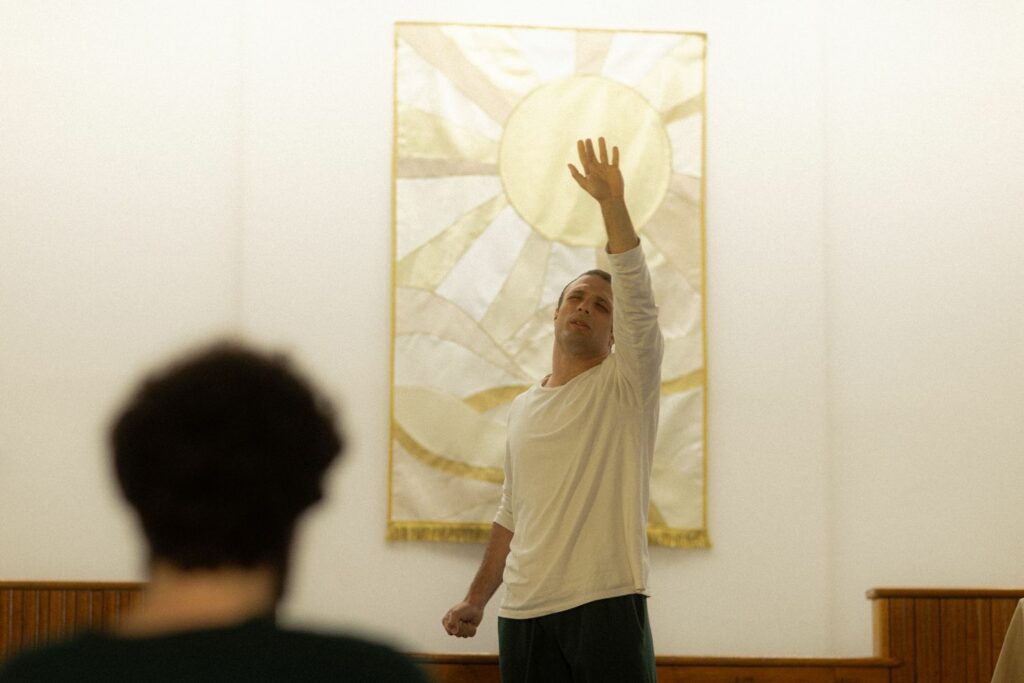
All These Creatures, the short film that won Williams his Palme D’Or, is a meditative exploration of a boy’s memories of his father that also concentrates on the influence of paternal figures. Williams insists the focus on father figures isn’t his calling card, but explains that in many ways, All These Creatures functions as a companion piece to his new film. “Inside is really an extrapolation of All These Creatures,” he says. “After finishing the short film, there were elements of it that I wanted to explore further, but I didn’t want to just extend the story of the short film.”
Inside is a film set in a prison, but it’s not a prison film by the genre’s standards. There’s no trace of Spielbergian optimism or the feel-good aspects that became the trademarks of Frank Darabont’s forays into the genre. Williams wanted Inside to feel like an authentic look at how damaged people deal with the damage they’ve caused.
Among the list of films he says influenced Inside, Williams doesn’t mention any prison films. Instead, he lists documentaries like Let There Be Light, which details the experiences of soldiers with PTSD returning from World War II. Of narrative films, Williams names One Flew Over the Cuckoo’s Nest as one of his biggest influences. “It’s not prison-based, but it deals with that kind of institution, which is far closer to reality from my experience of seeing prisons in the real world,” he says. “They aren’t happy places, but it’s also not gangland stuff. Prisons house very damaged people who may nonetheless be dangerous, but the predominant thing is that you can feel the damage.”
Staying away from the standard tone of the prison genre was intentional, says Williams. “I didn’t want it to feel like all the other prison movies I’ve seen. Having seen that side of the world and what it’s like in prison, it doesn’t look like the movies at all.”
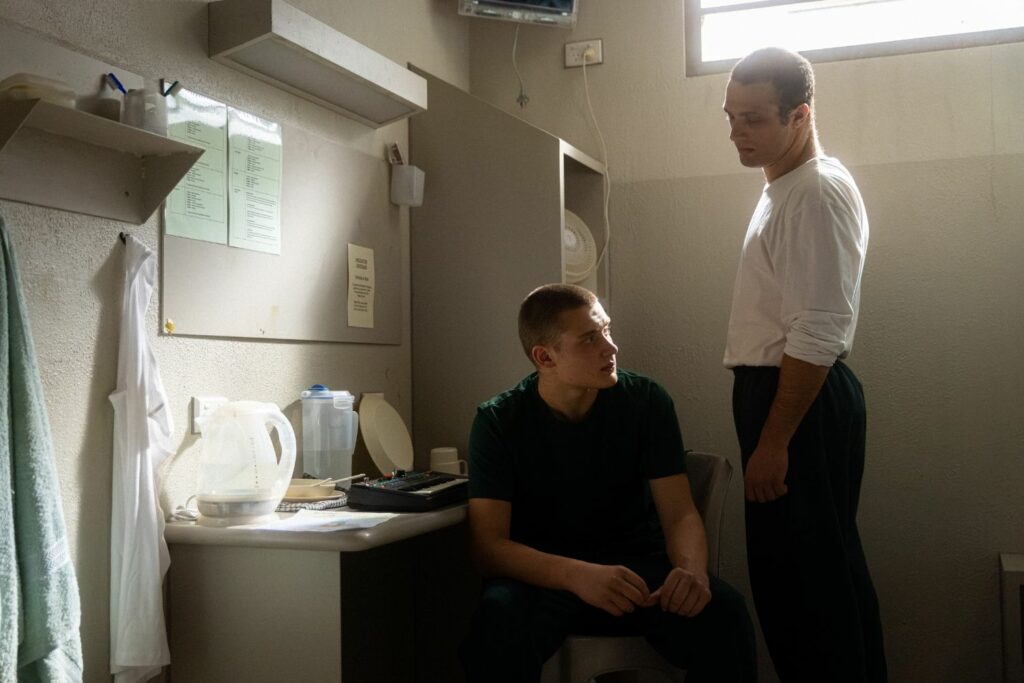
For that reason, Williams steered clear of some of the genre’s most celebrated films, like The Green Mile or Shawshank Redemption, when searching for inspiration. “Shawshank Redemption has such a fable-like quality to it. All the inmates are like the nicest people you’ve ever met. For Inside, the important thing was presenting the perspective of the inmates as evenly as possible so that you can feel sorry for them, but they aren’t going to look like these poor guys who have never done anything wrong,” he says.
“In prison films like Shawshank Redemption, you come away thinking that the whole system’s corrupt, and that’s not necessarily what I wanted the focus to be here,” Williams continues. “The genre tends to be about a corrupt system and a desire to literally escape it, like actually digging tunnels and that sort of thing. I wanted to avoid all of that and not have corruption, not be about abuse of authority and not be about people trying to find any kind of literal escape. I wanted the film to feel real.”
To achieve this level of authenticity, Williams spent years researching prisons all over Australia, but primarily in his native Victoria. “They gave me access to a lot of different prisons and I spoke to a lot of inmates and corrections officers,” he says. “It was about getting all the details right, learning how the days are run, details about their lifestyles and behaviour.”
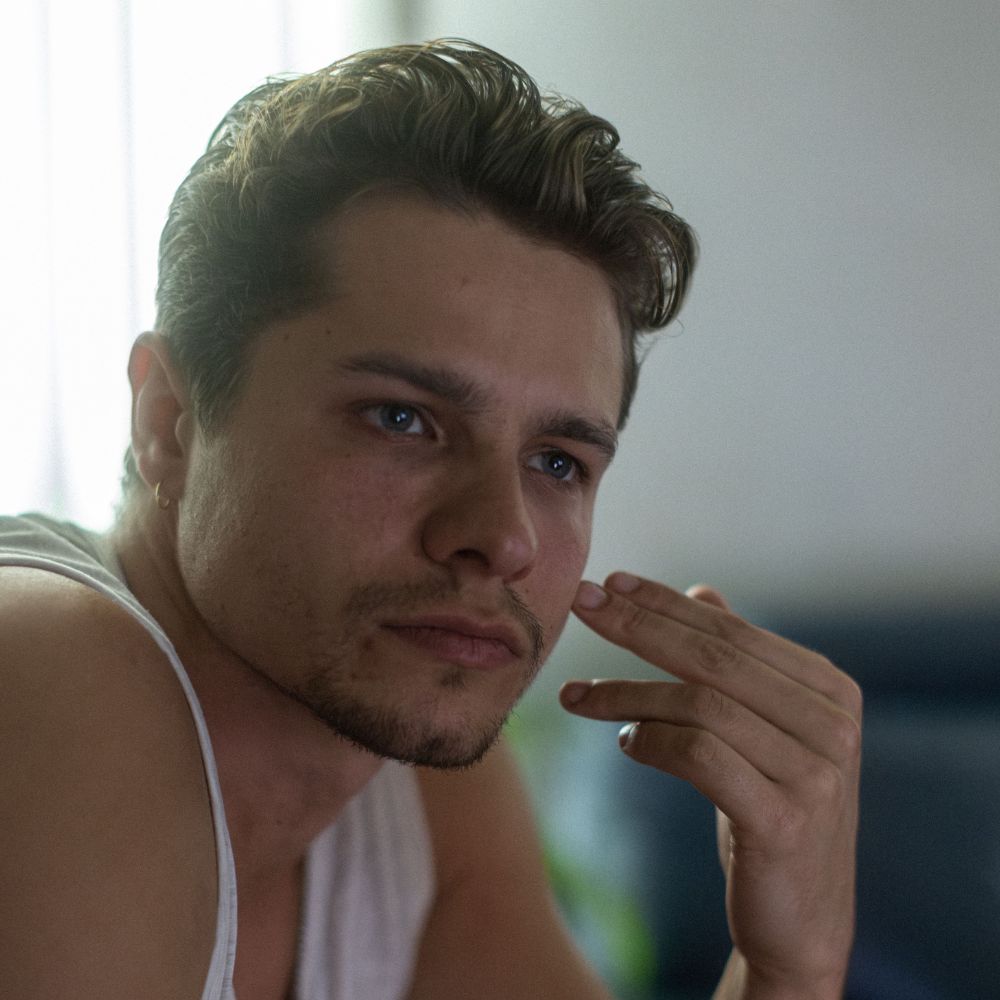
Most of the inmates in Inside are former prisoners, sourced primarily from organisations for rehabilitated criminals who have since been released and assimilated back into society. So yes, Inside is very real, right down to the most minute details. “They were able to give me feedback even while we were filming about really tiny things if something wasn’t right,” Williams says.
Despite the focus on authenticity, Williams didn’t want Inside to feel too dark, or ultra-realistic. “It’s not supposed to just be a gritty doco. Cinematically, I wanted the film to feel almost spiritual, not just realistic and grounded. I wanted it to be real in the sense that the characters and the behaviour and the world are all authentic, which makes it feel slightly poetic while still being a bit messy and loose.”
Inside, Charles Williams long-awaited debut feature-length film, premiered last week at the Melbourne International Film Festival. It will have six other showings during the festival, but we’d advise you to book now, as MIFF’s website says tickets are ‘selling fast’. Don’t feel too down if you miss out though, as this is only the start for Charles Williams, who assures us that he has plenty more in the pipeline.
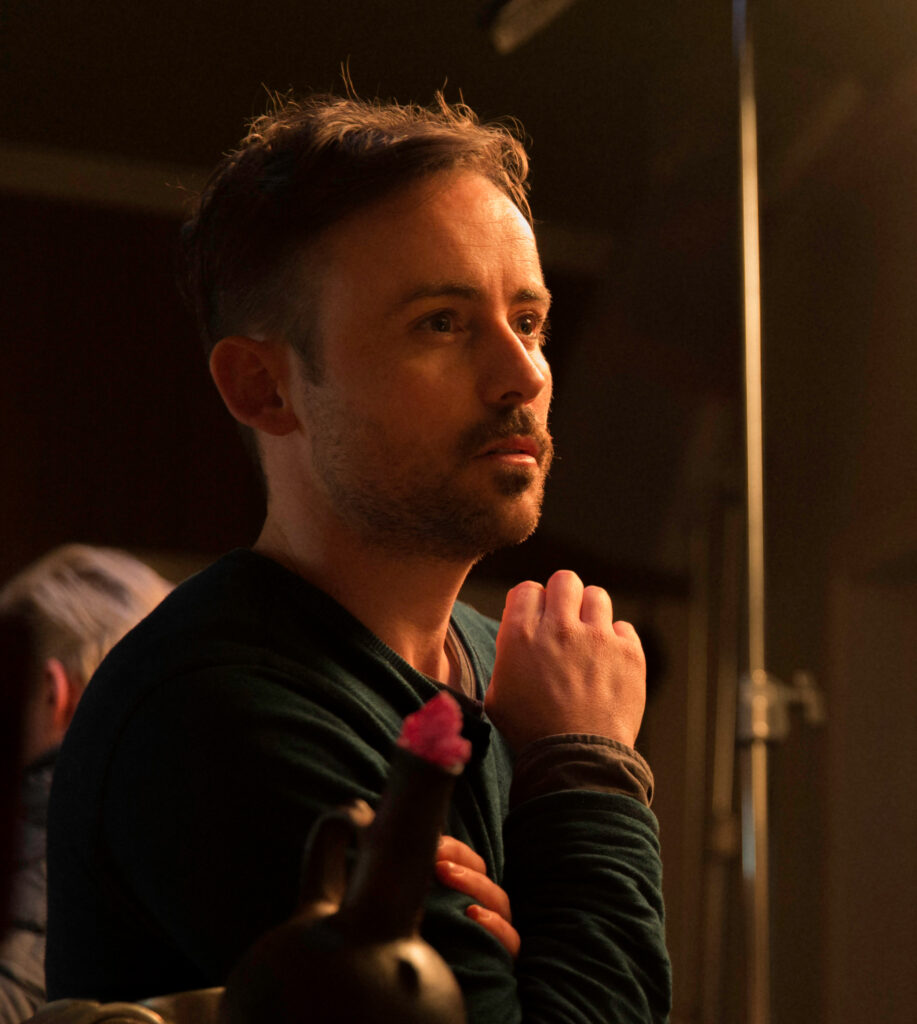
Related:












